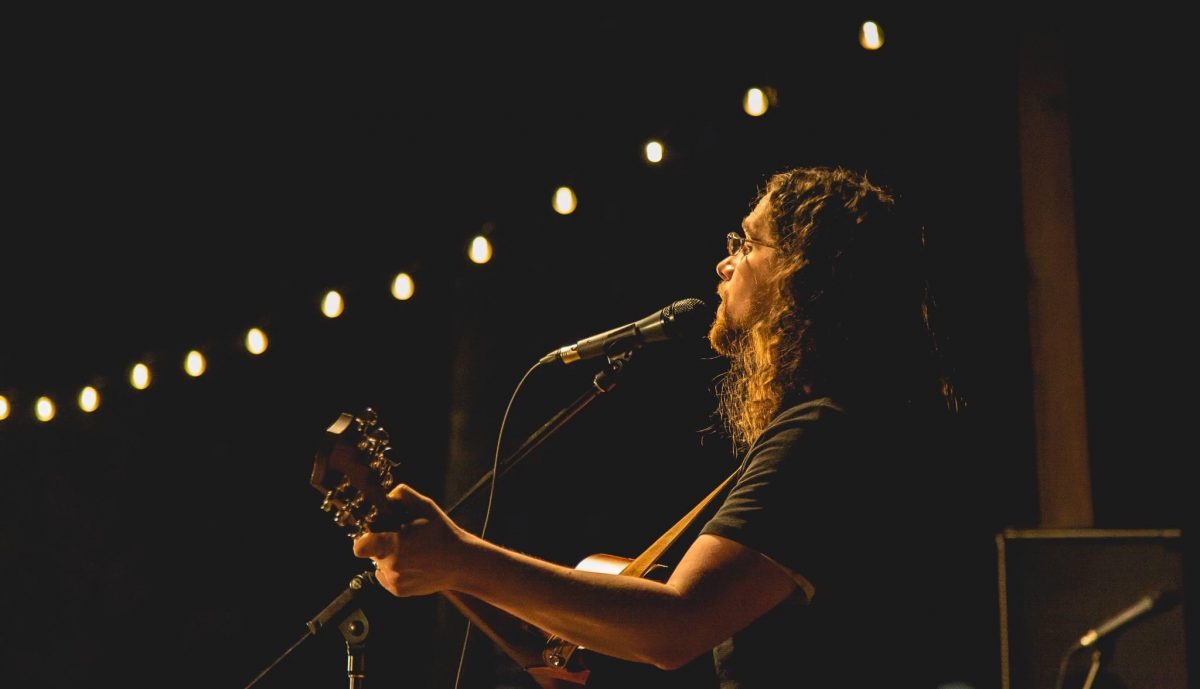Stephen McNeill found his voice when he was in his mid-20s.
He took the plunge and began singing.
“I found out I had a really functional voice,” says McNeill, 37. “I don’t have a tremendous range. I don’t have a huge diva’s voice, but I’ve grown increasingly aware of what I’m able to do. So, I try to tailor my songs to fit my voice.
“Some of the famous songwriters aren’t magnificent singers, but they tailor their voices to fit their songs. And it’s worked. It’s honest, believable, impactful.”
McNeill released his latest album, The Art of Repair, today, October 15th. His album release show will be at 7 p.m. October 16th, at his church, Vintage Church, 2761 Valleybrook Road. Tickets are $10. Children under 12 can get in free.
He recorded the album at Young Avenue Sound with his brother, Andrew McNeill, on drums, Carl Caspersen on bass; and Jon Gaines, on keys; and Nate Dugger on pedal steel. Calvin Lauber engineered it.
McNeill describes the music as “Laurel Canyon meets Memphis. I was really inspired by Joni Mitchell; James Taylor; Crosby, Stills, Nash & Young. A warm acoustic sound with harmony pedal steel and some meaningful space in the music. I grew up listening to them when I was young.”
McNeill was going through a lot when he wrote the songs last year. “A lot of relationship strains. A lot had to do with the pandemic. I think the pandemic just exposed a lot of the strains that were maybe just waiting under the surface.”
But he decided, “Let’s give it another shot.” Meaning, “Let’s not give up on people. Let’s stick with it. Try to repair what’s broken.
“Things have been broken. How should I respond to it? Should I run? Should I abandon this? Or should I work to try to repair what’s been broken in the relationships around me?’ There are certain things in life you can’t fix, but there are more things than we want to admit that can be fixed.”

“Rebuild,” the first single, was inspired by an attractive wooden house McNeill passed by every day. Then one day he noticed it had burned to the ground. Shortly after that, it was rebuilt in brick. “The first part of ‘Rebuild’ is semi fictional, imagining myself if my house burned down and what that must be like. And then moving forward with my life. That’s kind of where ‘Rebuild’ came from. Just going through some pain in relationships and deciding to stick around and fight it out and try to make a difference.”
“St. Patrick’s Day” centered around his mom, who died on St. Patrick’s Day. “Just me kind of looking back at that year and the process of my grief and what that meant to me.”
“In the Light” was written after McNeill was in a “pretty despondent place” in his life until he and his wife, Lexie, talked it over. “She sat me down and cleared the fog for me. She said, ‘The way you feel is valid and fine, but you’ve got to move past it now and into the light and see what’s true.’ Do not give up. We have feelings that can be deceitful. The people in our lives that are the closest to us are the ones to remind us about this and the things we really want to hear.”
A native Memphian, McNeill describes himself as “always an obsessive music listener.”
“I remember being 6 or 7 years old with a boombox. And, at first, you listen to the music your parents listened to. They listened to a lot of the Beach Boys. Some of the classic rock by the Eagles, Eric Clapton, and stuff like that. When I was young I got into Vanilla Ice and Guns N’ Roses. But I would listen to songs over and over and read all the liner notes on the cassette tapes and CDs I had.”
McNeill picked up the guitar at age 11.“The guitar became my native instrument. I just fell head over heels over it. That obsessive listening turned into playing. I can play along with that record I love so much. I can play that same drum part. I can play that same guitar part.
“You can play one drum groove on the drums and you can play one of a dozen songs. But with guitar, when you are playing the opening notes — as a seventh grader I was really into Nirvana — to ‘Come As You Are,’ there’s no mistaking what you’re playing. When you’re playing ‘Whole Lotta Love’ by Led Zeppelin, there’s no mistake what that is about. When you see videos of people playing, you see the energy they bring to the stage and what songs do to the crowd. Being able to imitate that is an exciting feeling.”
McNeill wasn’t playing Nirvana and Led Zeppelin to his audiences back then. “When I was young, I played at church.”
He began playing in front of the congregation at his then home church New Beginnings Baptist Church. “That taught me a lot about playing with a lot of other people and learning the names of those chords I was playing, being able to communicate with other musicians.”
McNeill also was in marching band in high school. “It wasn’t until college when I was playing with other people, in a real sense.”
He played drums, but moved to guitar in Philadelphia, the band he was in between 2006 and 2014. He co-wrote songs with lead singer Austin Black. “I’ve always been kind of a late bloomer in realizing what I’m capable of. My potential or whatever. But being in that band taught me that writing songs was do-able and was a meaningful way to express what I’m going through in life.”
McNeill wrote instrumentals in high school. “I was into the instrumental stuff Jimmy Page did with Led Zeppelin and guitar player Phil Keaggy. I tried to imitate that sort of stuff, but I was scared to sing. I was scared of my own voice at that time. I would write stuff for somebody else to sing.”
Philadelphia performed at various locations, including coffee shops. They also played at The Abbey in Cooper-Young. “It was mainly heavier bands in that scene. We were a little more melodic and less metal, which was strange. But it was a really fun scene. I thought of us as Coldplay meets Switchfoot kind of thing. We had loud rock and guitars, but our singer played keys.”
Philadelphia recorded four EPs, but, eventually, more and more members, beginning with McNeill, got married and had families. “I think the only way that we could have really kept it going was to hit the road. We couldn’t do that at that point in our lives.”
McNeill married when he was 20. “I was the first in the band to have kids.”
He began teaching music, which he still does. But, he says, “Once Philadelphia was over, I started thinking more about my own songs. I had written some songs at my church that we had sung on Sunday morning. And I had written some more personally oriented songs. I was still pretty nervous about singing then.”
“My Only Hope,” which he describes as a “congregation sort of hymn-style song,” is one of the songs they sing at his church, Vintage Church. “I don’t actually lead the music at our church, but I write a lot of it and help our worship leader along. I sent him a few of the songs: ‘Hey, if you think any of these would be useful or helpful, feel free to throw them into the set on Sunday.’ And he thought they would be.”
Now they probably use between 12 and 15 of them on a rotation basis, McNeill says. He recorded two companion records of those congregation songs: Centerpiece: Songs of Gospel Community and Centerpiece Vol. 2: Shelter and Shade.
His songs have “become part of the church’s DNA. And gave me more confidence as a songwriter, as well. I started singing on my own and became more confident.”
He also performs some of his congregation songs as bass player in the worship band, Sow & Tether.
McNeill began singing in church. He would “sing harmony with some friends who really are good singers and it really boosted my confidence in singing my songs. I started singing on my own and became more confident to where it led to this record.”
He had written other songs besides his congregation ones. “I had all these other songs come along that didn’t fit those records.”
And, he says, “Some songs are pretty old, but just have kind of been shelved for a while, looking for their new home.”
As to how he describes his music, McNeill says, “It’s the age-old question of how to classify art by a Christian. I’ve heard it said the term ‘Christian’ applied to anything other than a person is a marketing term. I agree with that, but we exist and I’m a Christian and these songs are from my perspective. And that’s what it is. If any of my music was going to be called Christian music, the congregation songs are most likely to be called those.”
But the goal of all of McNeill’s music is the same — to help people. “As a Christian, one of the biggest challenges is we’re not called on to be people who give up easily, especially not give up on people. That’s what we’re trying to do.”
To hear The Art of Repair, click here: https://open.spotify.com/album/5inS1XFCGOj5AAyzmf2hKo?si=i75JSMfhSmKXEsyd7su9fw
